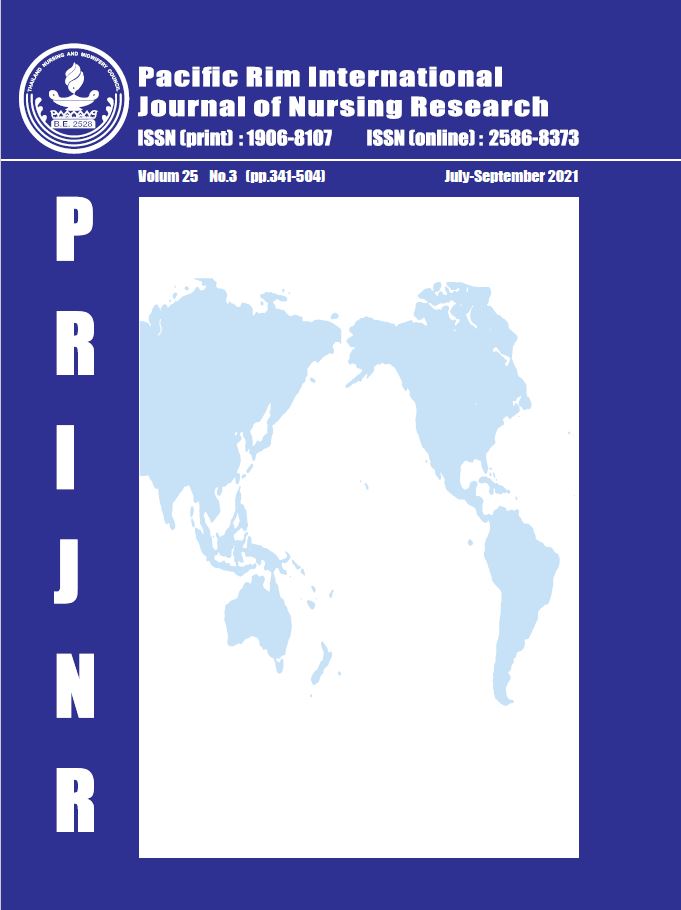Refining Woman-Centered Care in Prenatal Screening and Diagnosis for Thalassemia: A Qualitative Descriptive Study among Northeastern Thai Women
Abstract
Title: Refining Woman-Centered Care in Prenatal Screening and Diagnosis for Thalassemia: A Qualitative Descriptive Study among Northeastern Thai Women
Abstract When caring for pregnant women at risk for fetal thalassemia, genetic counseling is typically employed. To ensure the quality of care by fulfilling the individual women's unique needs, woman-centered care is utilized. This qualitative descriptive study aimed to understand the experiences of these women and to further refine woman-centered care. Through a purposive sampling technique, twenty Thai women in one northeastern province who had undergone prenatal screening and diagnostic tests, and who had already terminated the pregnancy or given birth, participated in this study. Most informants were interviewed in-depth two or three times. Data were analyzed using thematic analysis.1 Trustworthiness was achieved through member checking, peer debriefing, and self-reflection. There were six car-giving themes incorporated into the existing guidelines. Theme 1) Amending ambiguity: 1.1) assessing ambiguity in harms/curability, inheritance chance, and testing accuracy, and 1.2) making clear with the unknown. Theme 2) Respecting individual difference: 2.1) assessing and accepting different values: a mother’s heartbreaking VS a baby’s living normally; and safeguarding a baby from suffering VS giving life to a baby, and 2.2) facilitating shared decisions, misusing directive and coercion. Theme 3) Prioritizing well-being of an unborn baby: 3.1) nourishing an unborn baby, and 3.2) reassuring an unborn baby’s safety. Theme 4) Caring beyond courteousness: 4.1) assisting to regain consciousness, 4.2) enhancing mental strength, and 4.3) facilitating religious and spiritual coping. Theme 5) Caring extensively to family and community: 5.1) intervening when ‘My family hurt,’ and ‘I hurt my family,’ and 5.2) alleviating concerns over community attitude. The last theme, 6) Reducing negative experiences with service delivery: 6.1) senses of prolonged waiting and being rushed, and 6.2) needs for expertise and technology.
In conclusion, integration of genetic counseling with a woman-centered approach for these women includes extending the care to the fetus, family, and community, responding to the woman's unique psychosocial, cultural, ethical, religious, and spiritual needs, as well as respecting the woman's values, dignity, and decisions.
Keywords: prenatal screening and diagnosis, thalassemia, woman-centered care, Thai women, qualitative research
Downloads
Published
How to Cite
Issue
Section
License
Copyright: The Pacific Rim International Journal of Nursing Research, Thailand Nursing & Midwifery Council has exclusive rights to publish, reproduce and distribute the manuscript and all contents therein.








.png)



